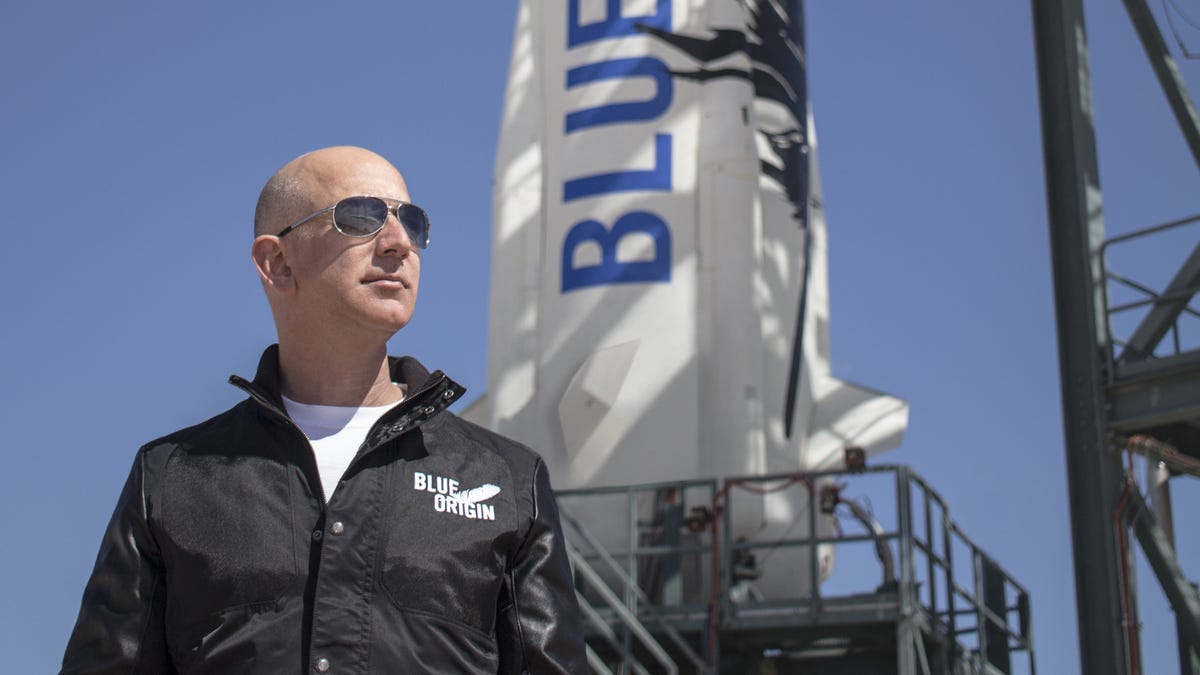Blue Origin lawsuit halts NASA's Artemis work with SpaceX
Jeff Bezos' space company is demanding its day in court over who builds astronauts' next ride to the moon.

The world's richest man won't back down.
NASA already has a challenging and arguably impossible goal of sending astronauts in the Artemis program to the moon by 2024, and now it's putting a key part of the program on hold until at least November.
On Monday, Blue Origin , the rocket company led by Amazon founder Jeff Bezos , filed suit in federal court against NASA over its selection of SpaceX as the sole provider of the Human Landing System for the Artemis program. As a result, on Thursday official work on HLS between the space agency and Elon Musk's pioneering private space outfit came to a halt.
"NASA has voluntarily paused work with SpaceX for the human landing system (HLS) Option A contract effective Aug. 19 through Nov. 1," the space agency said in a statement. "In exchange for this temporary stay of work, all parties agreed to an expedited litigation schedule that concludes on Nov. 1."
The lawsuit from Blue Origin, filed under seal, is an escalation following a protest from the company that was recently denied by the Government Accountability Office. That protest argued that NASA went back on its plan to award at least two HLS contracts and that the government improperly negotiated a lower price with SpaceX. NASA has said there was no commitment to any specific number of contracts and that it followed all procurement rules. SpaceX hasn't responded to requests for comment.
The complaint is the latest in a long-running feud with SpaceX, which NASA has picked over Blue Origin for coveted contracts in the past.
Read more: Why Jeff Bezos' Blue Origin is going to war with NASA and SpaceX
None of this is to say, however, that SpaceX is stopping or even slightly slowing down the development of its Starship and its Super Heavy booster, the massive vehicle and rocket intended for Artemis and Musk's own fantasies of moving humans to Mars. Just this week, Musk said that the ship is weeks away from being ready for its first orbital flight.
First orbital stack of Starship should be ready for flight in a few weeks, pending only regulatory approval
— Elon Musk (@elonmusk) August 15, 2021
Being ready doesn't mean Starship and Super Heavy will actually fly anytime soon, though. There are likely still months' worth of environmental approvals and other red tape to clear before the Federal Aviation Administration will issue a launch license for the flight (not that having a license in hand hasn't always stopped Musk from launching).
Follow CNET's 2021 Space Calendar to stay up to date with all the latest space news this year. You can even add it to your own Google Calendar.

